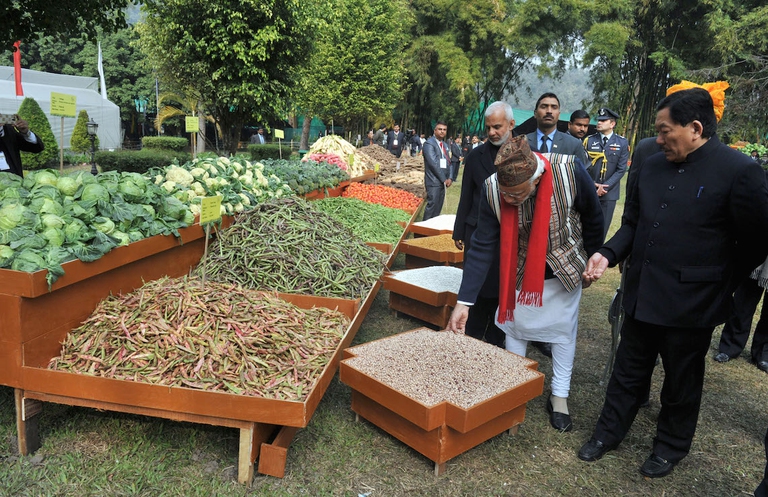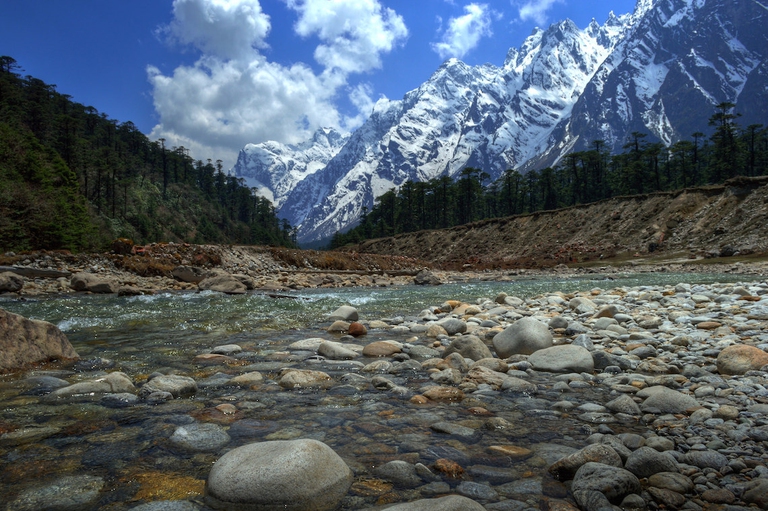
Factory farming conditions and antibiotic-resistant pathogens emerging as a result of them pose an existential threat to humans in the form of zoonotic diseases. Why it’s time to produce and consume food more thoughtfully.
The government decided to make Sikkim a certified organic state thirteen years ago. Around 75,000 hectares of agricultural land were gradually converted. Organic practices and principles were applied according to the National Programme for Organic Production’s guidelines, says Sikkim Organic Mission’s executive director, Doctor Anbalagan. Foundational measures Although the state has traditionally not been an
The government decided to make Sikkim a certified organic state thirteen years ago. Around 75,000 hectares of agricultural land were gradually converted. Organic practices and principles were applied according to the National Programme for Organic Production’s guidelines, says Sikkim Organic Mission’s executive director, Doctor Anbalagan.
Although the state has traditionally not been an excessive consumer of pesticides (using 8 to 12 kilos of chemical fertilizers per hectare compared to the national average of 90), getting the whole state to turn organic was a tremendous task. Steps like banning the sale of chemical inputs and strict penalty measures for non-compliance were put in place. Even more crucially, the government bore the cost of having the land certified as organic by accredited agencies for the first three years.
The Sikkim Organic Mission, backed by government funding, supported this initiative by providing seeds and manure, training farmers in organic methods and even sending them outside the state for advanced training. The government initiated further infrastructural measures such as building bio fertilizer units, seed processing units and soil testing labs – enabling the organic cycle to bloom. Farmers have also been facilitated in receiving loans as well as as being provided counseling support by the agricultural department. Startups like Organic Sikkim have also helped farmers find markets for their produce, eliminating middlemen and resulting in higher profits.
Even India’s budget for 2016-17 introduced various measures to increase crop yields and boost organic farming. These include increasing the area of land to be brought under organic farming to half a million acres and launching a scheme to push sales of organic produce in both domestic and export markets.
Farmers in Sikkim earn 20 percent more than they did beforehand because of the premium nature of their produce. In addition, tourists are flocking to enjoy the healthy crops and the younger generation is becoming evermore entrepreneurial. Business is flowing in from all over the country and internationally.
In the long term, it is thought that organic farming will lead to agricultural subsistence. It will also aid in biodiversity conservation, environmental protection, improving soil health and boosting the tourism industry.
Although the demand for organic food is currently limited to a small section of India’s urban population, awareness of the ill effects of inorganic and chemical-ridden food is growing. It is thought that the organic market in India will treble, reaching 1.3 billion dollars. Sustained incentives by the government, private companies’ support, and awareness building on the relationship between food, health and the planet need to be applied not only in Sikkim, but all over the country.
India is plagued by thousands of farmer suicides, back-to-back droughts, groundwater contamination, poor biodiversity conservation and grave health effects on humans and animals. Organic farming may be the panacea for some of Indian agriculture’s most pressing problems.
Siamo anche su WhatsApp. Segui il canale ufficiale LifeGate per restare aggiornata, aggiornato sulle ultime notizie e sulle nostre attività.
![]()
Quest'opera è distribuita con Licenza Creative Commons Attribuzione - Non commerciale - Non opere derivate 4.0 Internazionale.
Factory farming conditions and antibiotic-resistant pathogens emerging as a result of them pose an existential threat to humans in the form of zoonotic diseases. Why it’s time to produce and consume food more thoughtfully.
The world of cinema recognises the link between food choices and the climate crisis by offering vegan menus for awards season events, including at the most important of them all: the Oscars.
The future scenario of the global food system is a matter of worry for experts and the scientific community because of the vulnerability of agriculture to the impacts of global warming. It is estimated that agricultural productivity will decline 15 to 30 per cent by 2080 in the developing regions most subject to climate change – Africa, South Asia and Central America. For some
Let’s look at the reasons behind the growth of veganism in India, as a small yet vocal section of the population turns towards this diet and lifestyle in the largest milk producing country in the world.
by Jeffrey Y. Campbell, Manager of the Forest and Farm Facility at FAO In the Ecuadorian Amazon, Kichwa farmers grow dozens of products on tiny parcels of land. Their lands hum with biodiversity, yielding nutritious foods that have sustained families for generations. Wandering among fruit and nut trees and crops, these indigenous agroforesters fill their baskets
Mint has many health benefits, but in food it’s often accompanied by artificial green colourings. Instead, Galatea has created a green mint ice cream in a completely natural way.
We’re talking about Galatea, a company that produces semi-finished products for artisanal ice creams using high quality ingredients, natural colouring, excluding thickeners and hydrogenated fats, respecting the environment and supporting the less fortunate.
The mad rush to fake food, like fake meat made with genetically-modified soy, ignores the importance of the diversity of our foods and culinary cultures. It’s a recipe to accelerate the destruction of the Planet and our health.
Like with all foods, the quality of an ice cream can be discerned by reading its label. An expert explains how to do this, and tells us how their company steers clear of chemicals, using only natural ingredients to produce an excellent and “free” ice cream.









